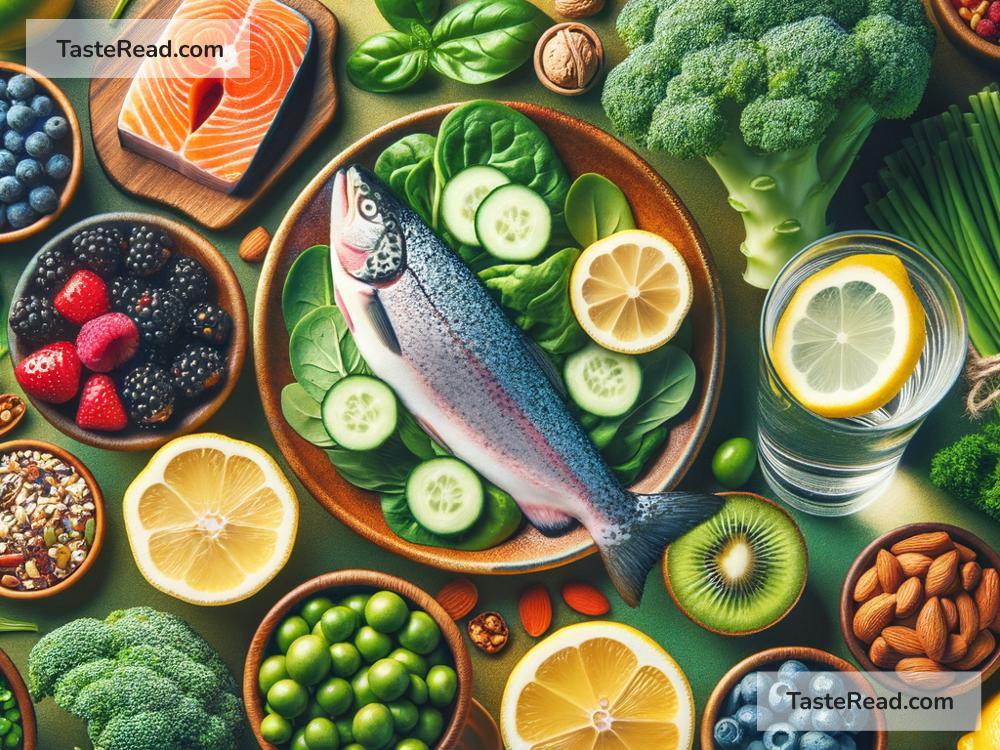Foods That Reduce Risk of Asthma: Healthy Eating for Better Breathing
Asthma is a condition where the airways in your lungs become inflamed, making it hard to breathe. Millions of people around the world struggle with asthma, and while there isn’t a cure, there are ways to manage it better. Did you know that the food you eat can play a role in reducing your risk of asthma or helping ease its symptoms? Eating the right foods doesn’t replace medical care, but it can support better breathing and overall lung health. In this blog, we’ll share simple tips on foods that help reduce the risk of asthma.
What Is Asthma?
Before we dive into the foods, let’s understand asthma briefly. Asthma occurs when the airways (the tubes carrying oxygen to your lungs) are inflamed, narrow, and produce extra mucus. This causes coughing, wheezing, and shortness of breath. Triggers for asthma include allergens, pollution, stress, exercise, or cold weather. While asthma can’t be “cured” entirely, its symptoms can be managed through medicine, lifestyle changes, and dietary choices.
The Link Between Food and Asthma
Healthy lungs need proper nutrition to stay strong. Certain nutrients, antioxidants, and healthy fats can reduce inflammation in the airways and prevent asthma flare-ups or attacks. On the flip side, some foods might worsen asthma symptoms or contribute to inflammation in the lungs. That’s why it’s important to choose foods that support your respiratory health.
Foods That Reduce the Risk of Asthma
Here are some foods that can lower inflammation, strengthen immunity, and keep your lungs healthy:
1. Fruits Rich in Vitamin C
Vitamin C is a powerful antioxidant that helps fight inflammation and strengthen your immune system. This vitamin can protect your lungs from damage caused by pollution or allergens while reducing asthma symptoms. Citrus fruits like oranges, grapefruits, and lemons, as well as strawberries, kiwis, and papayas, are great sources of Vitamin C.
2. Vegetables Filled with Beta-Carotene
Beta-carotene, a nutrient found in brightly colored vegetables, is converted into Vitamin A by your body. Vitamin A supports good lung health, reduces inflammation, and may prevent asthma attacks over time. Carrots, sweet potatoes, spinach, kale, and bell peppers are all rich in beta-carotene. Try adding these veggies to soups, salads, or smoothies for an asthma-friendly boost.
3. Foods High in Omega-3 Fatty Acids
Omega-3 fatty acids are healthy fats that help decrease inflammation in the body, including the airways. They may also reduce the frequency of asthma flare-ups. Include oily fish like salmon, mackerel, and sardines in your diet. For vegetarians, walnuts, chia seeds, flaxseeds, and algae-based supplements are good sources of omega-3.
4. Whole Grains
Whole grains are packed with fiber and nutrients that support overall health and help reduce inflammation. Eating fiber-rich foods like oats, brown rice, quinoa, and whole-grain bread can keep your lungs healthier and lower the risk of asthma triggers.
5. Spices Like Turmeric and Ginger
Spices like turmeric contain curcumin, which has anti-inflammatory properties that can reduce asthma symptoms. Ginger also helps relax the muscles in the airways, making breathing easier. Add these spices to your meals or as teas to calm inflammation and support lung health.
6. Foods Rich in Magnesium
Magnesium is a mineral that helps relax the muscles around your airways. Some studies suggest that magnesium may play a critical role in reducing asthma flare-ups. Foods rich in magnesium include avocados, bananas, almonds, cashews, dark chocolate, and leafy greens.
7. Probiotic Foods
Probiotic foods, such as yogurt, kefir, and fermented vegetables (like sauerkraut), promote healthy gut bacteria. Research shows a connection between gut health and asthma symptoms, with probiotics potentially helping to improve your immune system and reduce inflammation in the lungs.
Foods to Avoid If You Have Asthma
While some foods help asthma, others can trigger symptoms. Common culprits include:
– Processed foods: High in unhealthy fats and preservatives, these can increase inflammation.
– Sugar and sweetened snacks: Excess sugar may fuel inflammation and weaken immunity.
– Salt: High-sodium diets might worsen asthma symptoms, so reduce your intake of salty snacks and fast food.
– Dairy (for some people): While dairy is healthy for many, some people find it triggers mucus production, making it harder to breathe.
Simple Tips for Better Asthma Management Through Diet
- Focus on eating whole, natural foods instead of processed snacks.
- Stay hydrated with water or herbal teas that soothe the lungs.
- Avoid overeating—large meals can put pressure on your breathing.
- Experiment with asthma-friendly recipes that include fruits, veggies, and spices.
Final Thoughts
Asthma can be a challenging condition, but smart dietary choices can make a difference in managing its symptoms and improving lung health. Adding antioxidant-packed fruits, omega-3-rich fish, and anti-inflammatory spices into your meals might not only make breathing easier but also improve your overall health. Along with a healthy diet, it’s important to take your prescribed medication, avoid triggers like smoke, and exercise regularly (with your doctor’s advice).
Remember, healthy eating is a gift we give to our bodies every day. By choosing the right foods, you can support your lungs and enjoy better breathing—and a healthier life!


